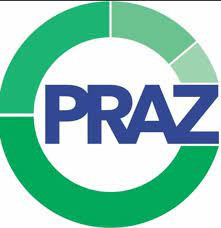
ONE of the greatest punishments incarceration carries with it is separation of parents from their children.
Report by Ropafadzo Mapimhidze
Not knowing what will happen to children particularly when a mother goes to prison is a challenge facing Zimbabwe and many other countries in southern Africa. A nursing mother stops breastfeeding her baby the moment she is jailed.
Children may also become destitute, given the number of homes that are headed by single mothers. These include divorcees and widows.
Some of these children may find themselves on the streets as rented accommodation is seized and left with no one to fend for them.
There is a saying that “it takes a village to raise orphans”, but this is not the scenario today.
Extended families are engrossed in their own socio-economic problems, and hence taking up these children is no longer an issue that happens automatically.
It is for these reasons that Ethel Kubvoruno Chaza Indi, affectionately known as Kubi, and a group of trustees have established Our Children Our Future Trust (Ocoft), to assist such children while their parents serve time in prisons.
- Chamisa under fire over US$120K donation
- Mavhunga puts DeMbare into Chibuku quarterfinals
- Pension funds bet on Cabora Bassa oilfields
- Councils defy govt fire tender directive
Keep Reading
Speaking at the launch of the organisation recently, Chaza Indi said incarceration of a parent already struggling with survival issues such as poverty, discrimination, instability, violence and limited access to sources of support, just added more stress to a family.
“For the most part, stigmatisation and stress associated with parental arrest, imprisonment and separation pose difficulties for children.
“Feelings of being stigmatised by peers, teachers and society in general are common among children of these prisoners,” Chaza Indi said.
Such children, she added, were often haunted by cultural beliefs that they are destined for illicit activities themselves, and in the process they become the unseen victims of their parents’ incarceration, rarely getting the support they need.
Statistics from Chikurubi Female Prison show that there are at least 97 children born from such parents that are doted in various communities. Their ages range from day-olds to 18 years.
The research also noted that most of these children are in the custody of relatives, notably grandparents.
The report notes that only 56 out the 97 are in school.
The remainder was not in school for various reasons that ranged from lack of school fees or absence of a guardian to ensure they go to school.
There was not enough data on the health status of these children, however, the limited information available indicates that some of them suffer health problems that range from heart, respiratory and HIV-related illness.
Plans were underway to conduct needs assessment of these children to establish individual needs, starting with those whose parents are in Chikurubi, with special attention to child-headed households.
“Of great concern is the fact that research shows that relative to their peers, children of prisoners are six times more likely to become involved in juvenile and adult criminal activities and to be incarcerated at some point in their lives.
“These statistics are scary and we need to do something about this problem,” Chaza Indi said.
Zimbabwe has 46 prisons in six provinces, Harare, Mashonaland Central, Mashonaland West, Midlands, Masvingo and Matabeleland.
However, six of these prisons cater for women, and these include Chikurubi in Harare, Kadoma, Bindura Mutare, Shurugwi and Mlondolozi.
Plans are underway to establish a suitable centre where these children will be trained life skills and to train incarcerated parents in various skills upon release.
“My particular concern was for children of prisoners. These women usually come from marginalised backgrounds.”
She said she met prison officials to find a way of assisting such children, because “I knew that I could not do it alone”.
“I approached women whom I thought were sympathetic to this cause and surprisingly, all the women were to be part of this dream,” she said.
The major aim of this organisation is to also provide shelter, food, medical and educational and psycho-social support to beneficiaries.
“We are aiming at a holistic intervention development of these children.”
One woman who was released recently from Chikurubi Prison in Harare lamented how she was given no time to plan about guardianship of her children when she was jailed for nearly one year.
“I worried day and night about the fate of my two children. Were they still going to school? Who is looking after them now? How safe are they without me at home. “I can do time alone, but I also need to know what is happening to my three children. That really hurts,” the woman said.
Gender of parent is also a major factor in patterns of incarceration, fathers account for majority of incarcerated parents.
For incarcerated fathers, the child’s mother is the usual caregiver.
But when a mother is jailed, there are greater chances of these children moving to a life of depravation.
Instead, most commonly, the grandparent becomes the caregiver.
Research has proven that, generally, a small percentage of children live with their father as the sole caregiver and that it is more usual for children to be living with a single mother prior to incarceration.
Thus, when a parent is incarcerated, it is more likely that children will experience separation from mother than separation from their father.
After returning to Zimbabwe at independence, Chaza-Indi and actor husband John Indi started a company that manufactures beauty products specifically for black skin and African hair.
Kubi cosmetics are a well-known brand in Southern Africa.
Under her maiden name, Kubi Chaza, she was an actress in the UK, appearing in Live And Let Die in 1973 as a saleswoman picking up James Bond.
Chaza Indi is Ocoft chairperson, who is very active in community development issues, particularly with respect to issues affecting women.
Other Ocoft trustees were drawn from various professional fields and these are: Norah Dumbutshena, vice-chairperson, and Violet Matani as patron.
Other trustees include Thembeka Mugwisi; Dr Christine Chiedza Chakanyuka–Musanhu, a medical doctor; Faith Chamunorwa; Virginia Mudimu, a lawyer; Williet Nomusa Mabeza; Emma Mary Nenji, Netsai Faith Chamunorwa and Jennifer Machingauta.











